Westpac says Australia will go into recession due to coronavirus as shares take major hit
Westpac has tipped that the nation will go into recession due to the impact of the coronavirus as Australian shares plummet to their worst day since the global financial crisis.
Markets
Don't miss out on the headlines from Markets. Followed categories will be added to My News.
Westpac says Australia is sliding into recession after revising its growth forecasts to take into account the impact of the coronavirus.
The bank’s chief economist, Bill Evans, says Australia is heading for a “technical recession” — two consecutive quarters where the economy shrinks.
But he said a better way to characterise the likely contraction was a “major disruption”, and growth was expected to pick up later in the year.
In a note for investors today, Mr Evans said his forecast was based on the outlook now, and did not take into account stimulus measures likely to be announced by the federal government this week.
“We expect the Australian economy will grow by 1.6 per cent (in the year to the December quarter 2020) although growth momentum will be in two halves with the first half showing a contraction of 0.6 per cent and the second half growing by 2.2 per cent,” the bank said.
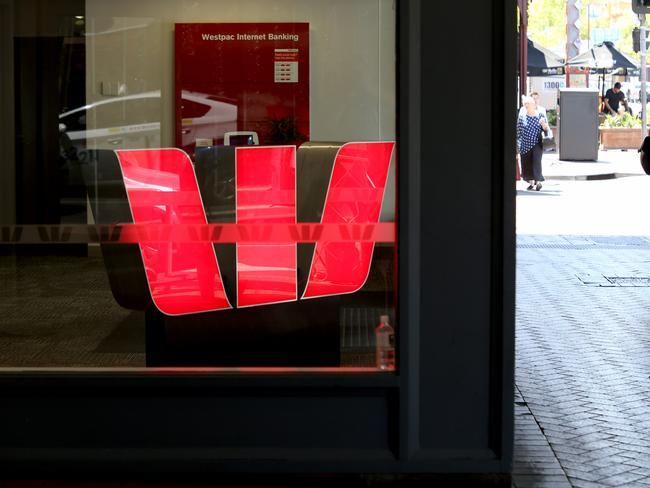
“On a quarterly basis we expect the economy will contract in both the first and second quarters by 0.3 per cent and 0.3 per cent respectively to be followed by a rebound of 1.4 cent and 0.8 per cent respectively in the third and fourth quarters.”
Unemployment was likely to hold below 6 per cent, Mr Evans said.
He warned that there was “uncertainty around these forecasts due to the unpredictable course of the outbreak”.
Westpac would revise its forecasts once the government revealed details of the stimulus package foreshadowed last week, he said.
The bank noted the virus has already been affecting financial markets, “which is likely to puncture confidence more widely”.
Earlier, a tsunami of red ink flooded the Australian share market as panicked investors flee, wiping more than $115 billion from its value.
The benchmark ASX 200 index was down 6.2 per cent shortly before 3pm — by far the biggest fall so far in the rout triggered by the coronavirus outbreak.
The broader All Ordinaries was down 6.3 per cent.
It means the market is on track for its worst day since October 2008, when the global financial system was plunged into crisis following the collapse of US investment bank Lehman Brothers.
The tumble today has ripped $116 billion from the value of the market.
Since February 20, when the ASX 200 was at a record high, $399 billion has been ripped away.
More than 1300 points have been cut from index, which has slumped 18.6 per cent — not far shy of the 20 per cent fall broadly regarded as a “bear market”.
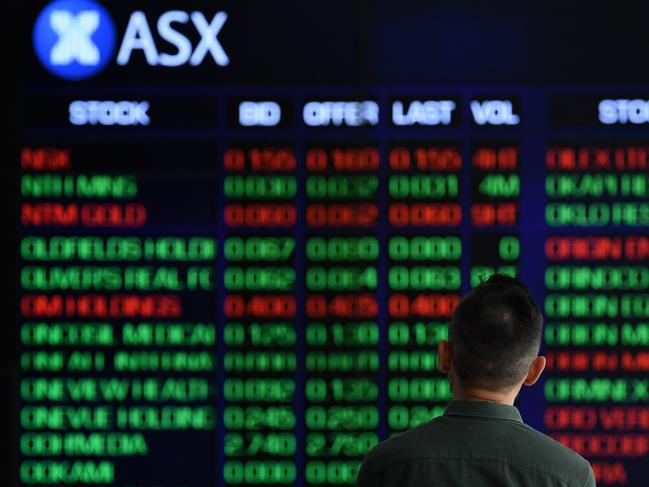
Almost $100 billion was cut from the value of the market within the first hour of trade today.
It came amid growing fears the spread of the Covid-19 virus would deliver a painful blow to the global economy, sending it spiralling into recession.
Overnight, Italy announced it was putting under quarantine a region holding about 16 million people – more than a quarter of its population – as it ratchets up efforts to slow the spread.
The market slump also follows dramatic falls in oil prices at the weekend as leading oil-producing nations argue over proposed supply cuts.
Brent crude, the key international benchmark, was down more than 25 per cent overnight in London, taking the biggest tumble since 1991.
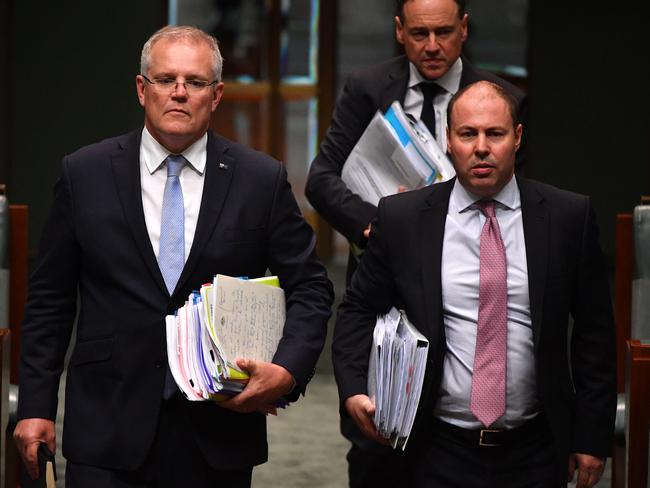
The energy sector endured its biggest ever intraday percentage slump, falling by as much as 19 per cent, after Saudi Arabia slashed its oil prices in a bid to gain market share from Russia.
Goldman Sachs warned that the price of Brent crude could hit as low as $US20 a barrel.
Woodside Petroleum fell 18.35 per cent to $21.54, Santos lost 25.37 per cent to $5.00, Origin was down 14.58 per cent to $5.80, Oil Search was 29.96 per cent weaker at $3.565, and Beach Energy slipped 21.82 per cent to $1.29.
MORE NEWS
‘Text speak’ not killing literacy, says expert
Winners of the Sony World Photography Awards
Daughter of couple killed on MH17: ‘We want honesty’
Singles jumping into the property market alone on the rise
The materials sector was also a major casualty, with Rio Tinto down 7.08 per cent to $80.14, BHP down 11.91 per cent to $28.355, and Fortescue Metals down 10.47 per cent to $20.66.
Gold added rare lustre to the market as investors flocked to the safehaven precious metal.
Evolution Mining was one of the beneficiaries, gaining 4.02 per cent to $4.63. Newcrest Mining enjoyed a gain of 5.98 per cent to $30.82, and Northern Star added 3.18 per cent to $14.92.
All four major banks were more than four per cent lower, with NAB shedding 6.1 per cent to $21.92 and Westpac down 6.0 per cent to $20.07. Commonwealth Bank shed 4.4 per cent to $70.68 and ANZ lost 5.6 per cent to $20.90. Macquarie lost 7.43 per cent to $122.13.
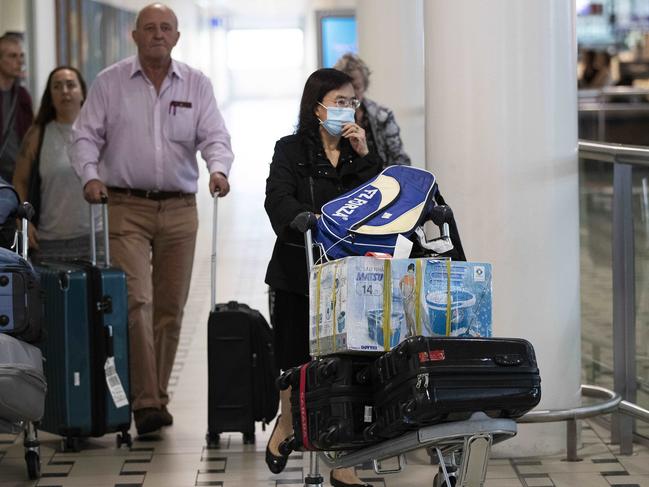
Airlines were also among those to suffer significant falls.
Qantas lost 38 cents, or 8.15 per cent, to $4.28. Air New Zealand’s price fell eight cents, or 4.02 per cent, to $1.91, while Virgin lost 3.45 per cent to $0.084.
The supermarkets did not fare quite so badly. Coles lost 43 cents, or 2.74 per cent, to $15.27. Woolworths suffered only a 31-cent loss, or 0.82 per cent, to $37.69.
Caltex, Qube, and the Rea Group all went ex-dividend, and their share prices were down between 3.4 per cent, and 8.7 per cent.
The S&P 500 index in the US had on Friday posted its 10th decline in 12 sessions as moves to contain the virus crippled supply chains and prompted a sharp cut to global economic growth forecasts for 2020.
The Aussie dollar was buying 66.12 US cents, up from 65.96 as the market closed on Friday.
Treasurer Josh Frydenberg has previously said the current economic climate is different to the global financial crisis (GFC).
Pressed on whether it could be worse than the GFC, Mr Frydenberg said “This is a health crisis with a significant economic impact”.
“There will be disruptions to supply chains. We’ve already seen it. There will be a hit on some sectors of our economy in particular. And we’ve already seen that. There are some 95,000 Chinese students that would otherwise be starting their semester that are unlikely to get here.
“And, of course, the number of tourists has dropped dramatically. So these are the economic impacts that the Australian Government, with our fiscal response, with the work of the Reserve Bank, is designed to continue to provide confidence to the Australian community,” Mr Frydenberg said.
It comes as the Morrison government prepares to dig deep into its dwindling budget surplus to protect the economy from the impact of the coronavirus.

The government is keeping the make-up of its promised $10 billion support package close to its chest.
Michael Croker, tax leader at Chartered Accountants Australia and New Zealand, expects it will include direct subsidies for impacted business, as well as some deferred taxes.
“We’re hoping for an investment allowance which will encourage not just small business, but big businesses which have got deeper pockets to go out there and spend and hopeful spend that money on small business suppliers,” he told Sky News.
The Australian Treasury estimates the virus will cut at least 0.5 percentage points from growth in the March quarter, on top of the 0.2 percentage drag from this summer’s devastating bushfires.
AMP capital chief economist Shane Oliver is forecasting an economic contraction in both the March and June quarters, which would mark Australia’s first recession since the early 1990s.
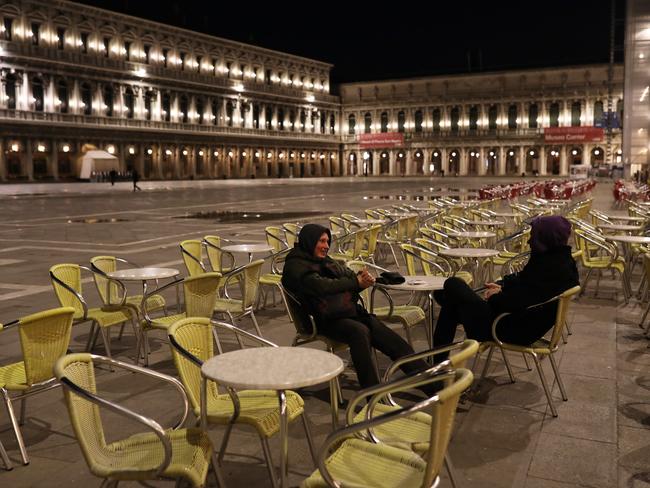
While he expects an initial stimulus of $3 billion to $5 billion, he believes there will be a need to increase it to around $20 billion by the time of the May budget to include a boost for households.
“So for now much of the pressure remains on the (Reserve Bank),” Dr Oliver said, who expects another interest rate cut to a cash rate of just 0.25 per cent next month.
With the virus spreading rapidly, its taking a toll on international travel.
Flight Centre has asked staff to cut back their hours or take unpaid leave.
“Staff can work a four-day week rather than five days with their salary reflective of this change,” said an email sent to staff and seen by The Australian.
“All staff have been offered the opportunity to reduce their FTE (full-time equivalent) by one day per week or fortnight.”
Meanwhile, Virgin Australia chief executive Paul Scurrah is urging the federal government to lower airport charges saying it would led to “less pressure to cancel flights”.
The company estimates the coronavirus will slash earnings by up to $75 million in the six months ending June 30.
– with AAP
Originally published as Westpac says Australia will go into recession due to coronavirus as shares take major hit
